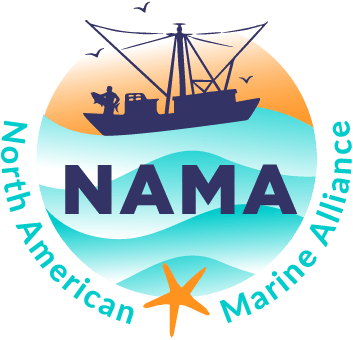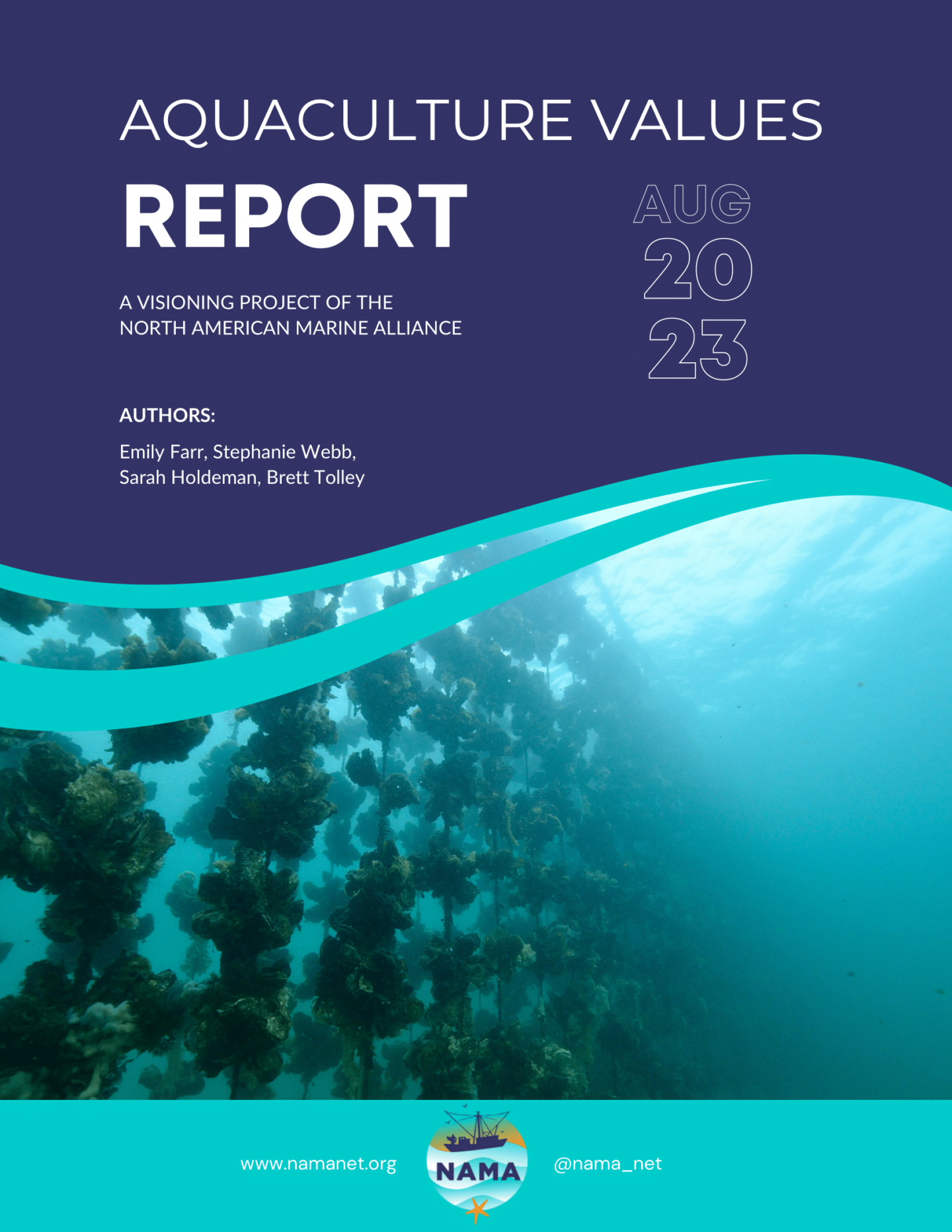Check out NAMA’s Aquaculture Values Report! After the release of the FoodPrint of Farmed Seafood, network members expressed a need for proactive values and member vision-driven reports describing the types of aquaculture NAMA’s network participants supported. As a result of the network survey and research, eight main aquaculture values were identified:
- Food - Aquaculture is essential to the overall seafood supply and is vital for healthy and culturally appropriate food systems.
- Stewardship - Aquaculture production should protect and honor every watershed and ecosystem’s intrinsic ecological value and environmental rhythms on land and at sea.
- Community-Based - Community-based aquaculture enhances the social, ecological, economic, and cultural fabric of our communities and integrates with existing fisheries.
- Access - Aquaculture should provide equitable opportunities for new and diverse participants of all ages, genders, races, cultures, and incomes.
- Equitable Supply Chains - All workers along the seafood supply chain deserve fair living wages, safe working conditions, and work with dignity.
- Place-Based Knowledge - Local and place-based knowledge is necessary to steward aquaculture operations in harmony with the surrounding ecosystems on both land and sea.
- Public Resource - We affirm the public trust doctrine and the unique rights of Tribal nations in their traditional homelands.
- Accountability - Fair, transparent, clear, and adequate regulatory planning and enforcement are critical to values-based aquaculture.
These shared values can help guide aquaculture toward practices and regulatory structures that protect ecosystems, provide new opportunities, and integrate into our shared lands and waters. And while it does not provide all of the answers, the Aquaculture Values Report may serve as a roadmap that helps us combat false narratives by uplifting the stories of small-scale growers who care about finding balance in coastal waters and working within their communities.

